Denis Baribeau- Becancour, Quebec
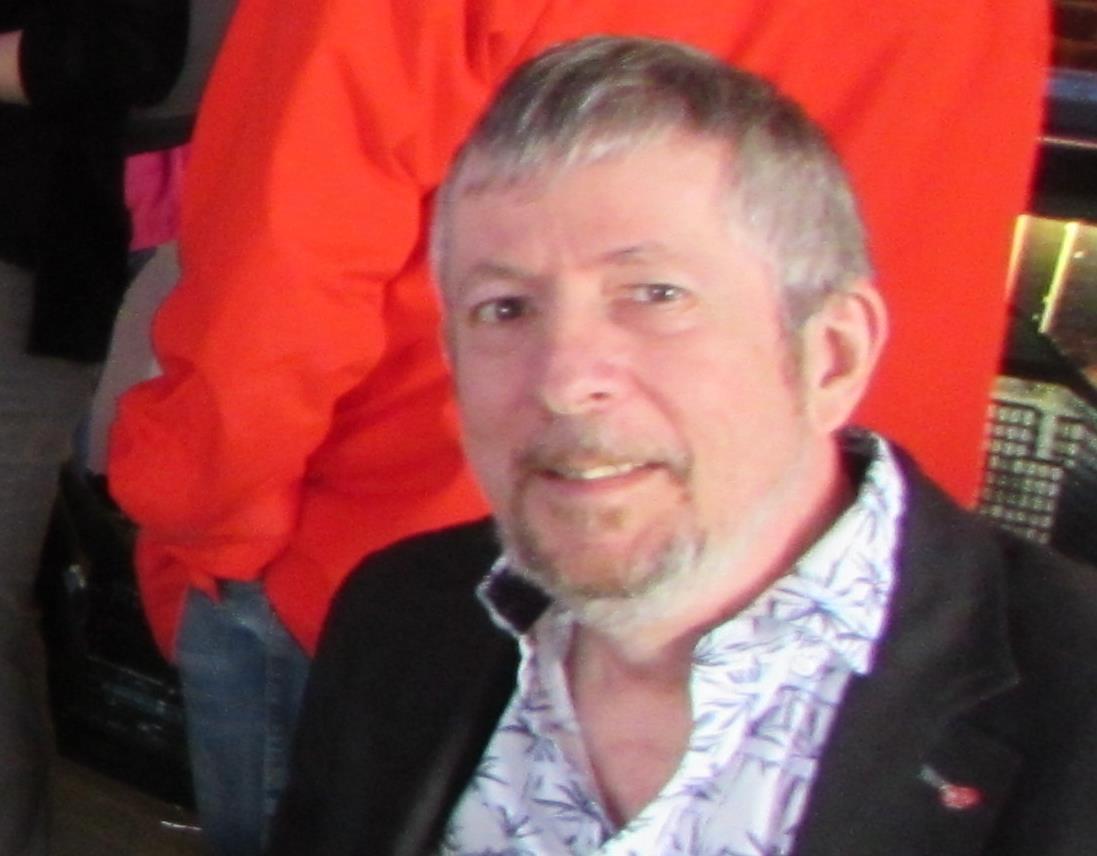
A Board member and volunteer in the fundraising campaigns of his local MS Society chapter since 1997, and diagnosed with MS for even longer than that, Denis brings experience of interacting with many people who have MS and thus knows their expectations and hopes for the future. “I would like to represent the point of view of a person who has been involved for many years and who has lived with MS for much longer. I could bring expertise and knowledge of the daily reality of a person who has MS while respecting the opinions of others and the rules and procedures already established.” As one of the new representatives on the endMS personnel awards review committee, Denis provided in depth insights into impact and relevance of the projects.
Read Denis’ full interview
In what ways have you been involved with the Multiple Sclerosis Society of Canada as a volunteer, as a leader, and/or as an ambassador?
I've been sitting on the board of my local chapter since 1997 and I've been its chairperson since 2001. I participate in every fundraising activity. I’m also part of the the provincial board of the MSSC. I've been a member of my provincial services committee since 2007. I'm the provincial representative with the National Government Relation Committee since 2007 and its provincial counterpart. I also sit with many committees with the MSSC and outside of it.
What inspires you to get involved with the MS community?
Simply because I'm convinced that MS can and will be beat.
Please describe one particular moment or experience with MS that is most important to you or has been most instructive in your life.
An experience that is the most important to me is being a chairperson for so many years. It helps me cultivate my abilities to speak in front of large groups and to become a motivator.
What do you hope to gain and contribute as the voice of the MS community in the research review process?
I hope to gain experience on the type of committee I’m sitting on to review, and obtain the feeling of being part of the front line in the fight against MS while getting the opportunity of meeting new friends.
Is there any area of MS scientific research that you are especially passionate about?
I really have high hopes for stem cell research as well as a person who practice physical training 3 times a week, the benefit of exercising.
Lynda Gregson-Dundas, Ontario
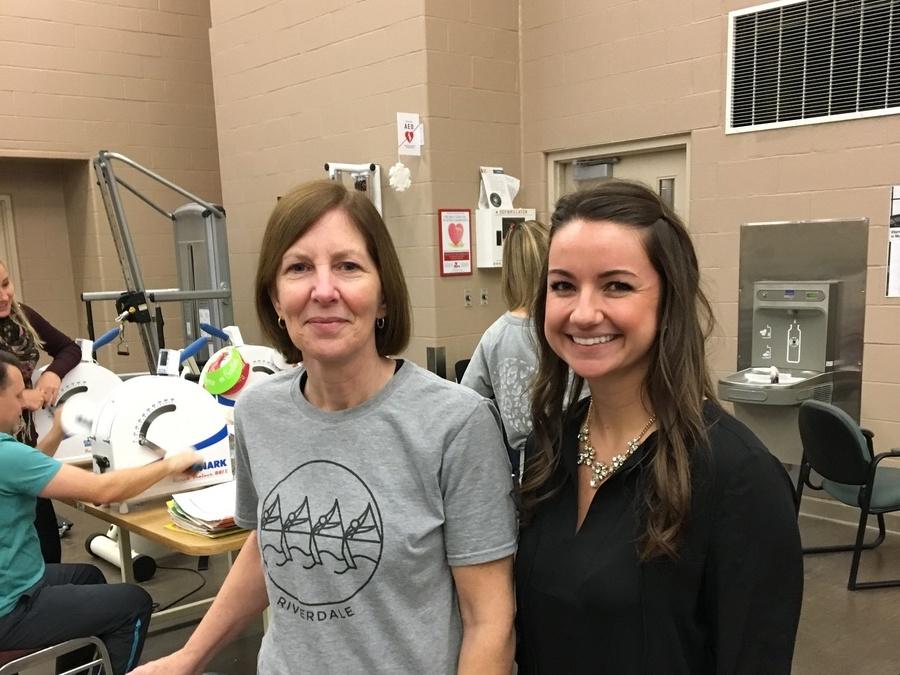
Diagnosed with MS for over 20 years ago, Lynda was interested in participating in the community in any way possible. She volunteered for the MS Society’s Hamilton/Halton chapter MS Walk for the past 15 years because it was one avenue for her to contribute to advancing research in MS. “I believe strongly in the importance of research in MS in the hope of discovering its cause and possible cure,” says Lynda. Returning for a second year, Lynda served as a community representative on the endMS Personnel Awards Review Committee.
Read Lynda’s full interview
In what ways have you been involved with the Multiple Sclerosis Society of Canada as a volunteer, as a leader, and/or as an ambassador?
I volunteered at the Hamilton (now the Hamilton-Halton) MS Walk for fifteen years.
What inspires you to get involved with the MS community?
I have received a great deal of support from MS Society sponsored programs, and from the volunteers and participants at these programs. Meeting other individuals with MS and hearing about all of the different experiences of living with MS, helps me feel that I am not alone in all of this.
Please describe one particular moment or experience with MS that is most important to you or has been most instructive in your life.
Three years ago I enrolled in a research study at McMaster University on MS and exercise rehabilitation. The study received grant money from the MS Society of Canada and PhD candidate Karissa Canning was the recipient of a MSSOC Doctoral Studentship Award. Dr. Karissa Canning was awarded her PhD in Kinesiology Multiple Sclerosis and Exercise Rehabilitation in 2018. I was in the study for four months and was inspired by Karissa, the other study participants, and the amazing staff and volunteers at McMaster University to continue attending the exercise program, which I do to this day. The physical, emotional and social benefits are numerous. I’ve enjoyed being a part of research in action.
What do you hope to gain and contribute as the voice of the MS community in the research review process?
As a returning Community Representative, I hope to continue offering insights from my own experience living with MS. Last year I was a Community Representative on the Biomedical Operating Grants review committee. I enjoyed learning about current and upcoming therapies and areas of research. I also had the privilege of meeting many of the inspiring MS scientists and researchers who volunteered their time on the review committee.
Is there any area of MS scientific research that you are especially passionate about?
I have been particularly interested in learning about the causes of MS and other autoimmune conditions, including environmental and genetic factors. My involvement in a study on MS and exercise has increased my awareness of the role of exercise, nutrition and other lifestyle factors in the cause and treatment of MS.
What did you learn from being a Community Representative last year and how does it change your perspective on research?
I did not know about the MS Society's research grant application process or the role of community representatives until last year when I noticed the MS Society's call for community representatives in their newsletter. I was surprised and impressed at the wide variety of research topics and researchers that were represented in the grant applications. The scientific reviewers committed many hours of their time and travelled from across the country to participate in the review process. I am encouraged and hopeful about the future of MS research.
How important is it to engage the MS Community in the review process?
I think it is very important for both the research community and MS community to hear from each other during this process. Client groups always should have a voice at the table.
What was your most memorable moment of the review process?
Last year I was a community representative on the Biomedical Operating Grants Committee. I enjoyed meeting the members of the scientific review committee and listening to them discuss the scientific merits of the grant applications. I was impressed with their thorough and unbiased approach to making the final funding decisions.
Beverley MacAdam- Toronto, Ontario
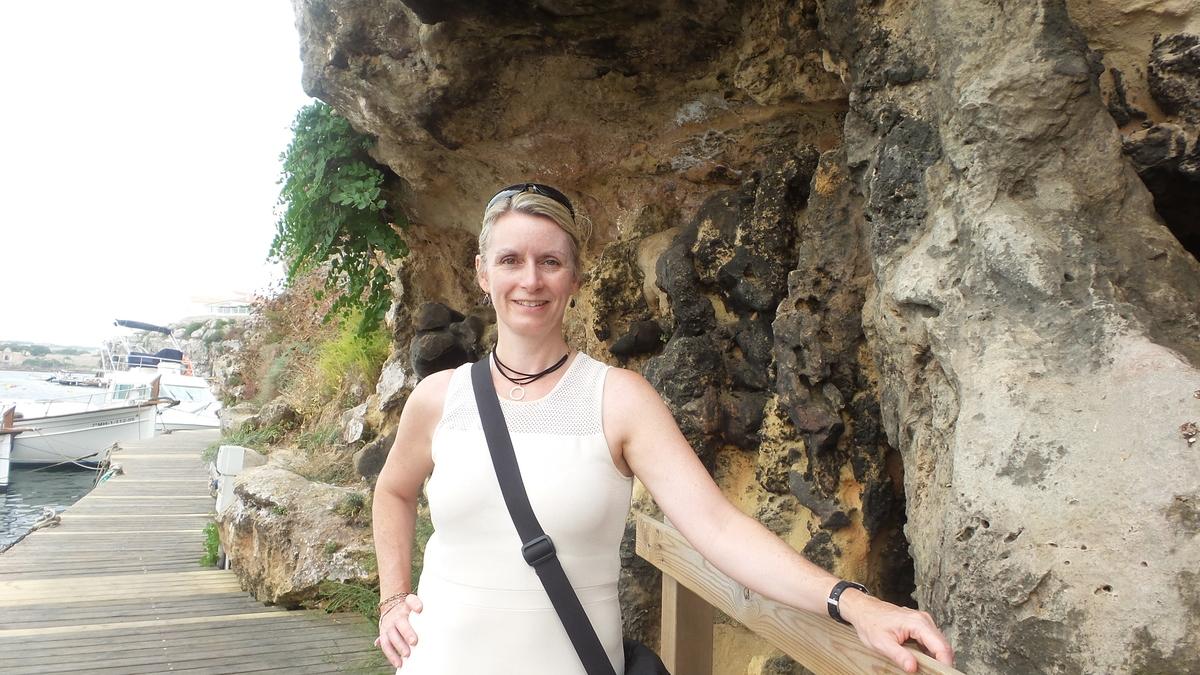
Beverley has been an avid volunteer with the MS Society for the past eight years by participating on the organizing committee for the Toronto Women Against MS (WAMS) Gala Luncheon.She hopes that research will lead to the development of novel treatments that will allow for easier management of the disease. “The more knowledge we have, the easier it is to manage, treat and explain the disease - reducing unnecessary stress. That is one of the reasons I am so passionate about MS research - understanding it will allow us to take more control of the disease and our lives.” Beverley served as a community representative on the end MS Personnel Awards Review Committee.
Read Beverley’s full interview
In what ways have you been involved with the Multiple Sclerosis Society of Canada as a volunteer, as a leader, and/or as an ambassador?
I have been involved with the Women Against MS (WAMS) Gala Lunch for over 7 years raising money towards MS Research in downtown Toronto. Not only is it an opportunity to give back to the MS Society and raise important funds, it is an incredible event that brings people back every year to hear how others are changing the world, and inspiring all of us to find a way to do the same.
What inspires you to get involved with the MS community?
I was diagnosed with MS over nine years ago and also have friends and a family member that has or has had MS. I have seen first hand both the impact that MS can have on a person's mobility and ability to fully live their lives - as well as the potential for new treatments and protocols to bring hope. I am delighted to contribute in a small way towards ending MS.
Please describe one particular moment or experience with MS that is most important to you or has been most instructive in your life.
It has to be the moment someone says "you have MS". It is a moment that will change your life forever, and can never be taken back. On the other hand, it is an opportunity to take control - you may not be able to change the diagnosis, but you can decide how you will change to manage the diagnosis. I have been fortunate with the lack of progress of my disease, and I want to bring that hope to others facing that same phrase.
What do you hope to gain and contribute as the voice of the MS community in the research review process?
Truthfully, I anticipate being awed and inspired by the amazing work that scientists have underway and in the planning stages. My only hope is that I can contribute in a small way to ensuring that the potential impact to MS patients is understood and well communicated.
Is there any area of MS scientific research that you are especially passionate about?
While I have relapsing-remitting MS, I am actually quite passionate about research on progressive MS. A close friend suffers from progressive MS and has not had the same treatment options and success that I have benefited from. Although, I have to also admit, my deep down desire is that one day I can tell my daughters that I no longer have MS - that I am cured and that they are not at risk.
Heidi Pylypjuk, Winnipeg, Manitoba
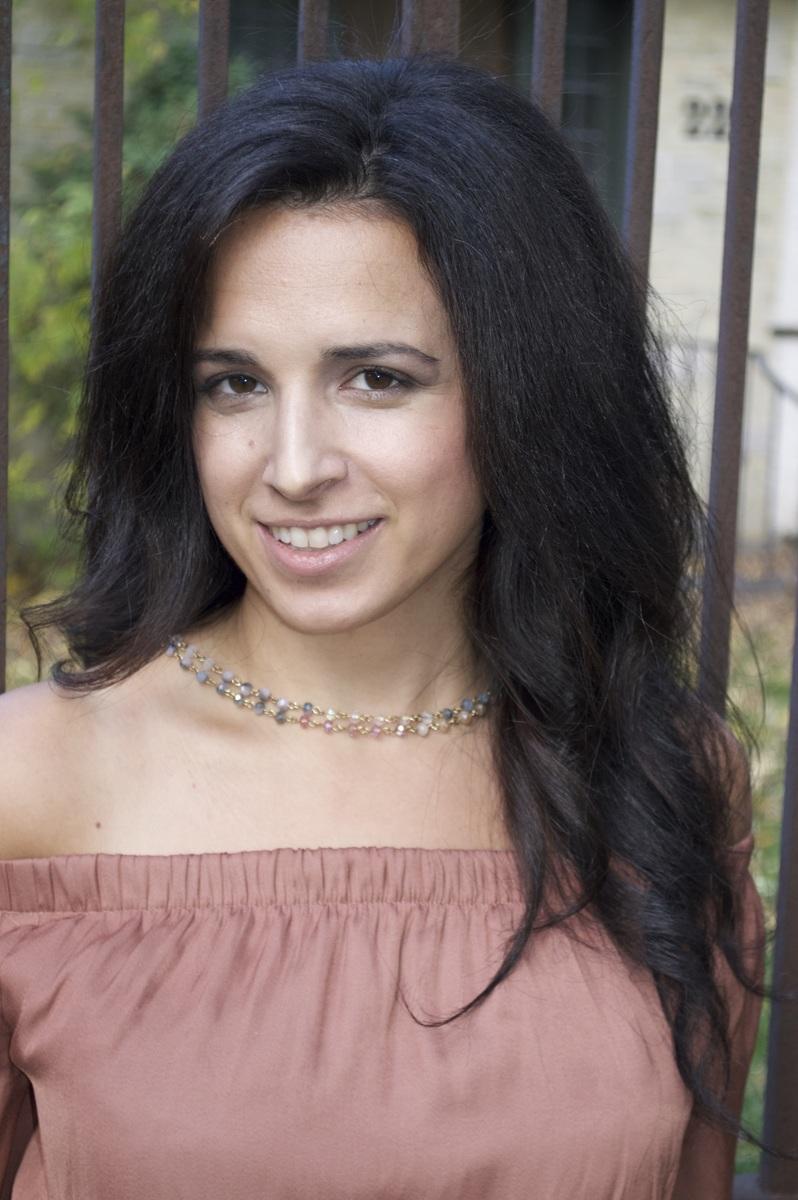
Diagnosed with MS at the young age of 12, Heidi has lived with the disease for a significant part of her life. She has been involved with the MS Society for the majority of her life by participating in MS Walk as a volunteer and as part of a team. She states, “ Obviously, finding a cure for MS is the ultimate goal. However, in the meantime, it’s very important to invest time and money into research and programs that help people affected by MS still live a good life.” Heidi has been preparing for an opportunity to serve as a community representative her whole life by learning the ins and outs of the disease, spending time to learn about all available treatments and their side effects and working on a research project that aimed to develop an animal model of MS. Heidi was a community representative on the endMS Personnel Awards Review Committee.
Read Heidi’s full interview
In what ways have you been involved with the Multiple Sclerosis Society of Canada as a volunteer, as a leader, and/or as an ambassador?
I am a volunteer at the MS Society-MB Division. Throughout undergrad, I volunteered at the MS walk but have now expanded to speaking at events and enjoy taking an active role in the programs for young adults. I am part of the planning committee for a one day conference for young adults with MS in Winnipeg called InTheHeartofIt. We have now expanded to a self-help group as well. It's amazing how sharing stories can be so empowering.
What inspires you to get involved with the MS community?
I have lived with MS for a very long time. Back in 2000, I was diagnosed with RRMS when I was in grade 6. Automatically, my family got involved with the MS Society and had a large team for the walk. Now as a young adult, I want to be more involved with the MS Society because I hope my lived experiences with MS at crucial developmental ages, will help others who are being diagnosed at a young age. I am also a researcher and can confidently say I literally know this disease from the inside out. From looking at myelin sheath cells under a microscope, to feeling the impacts of its deterioration on my body.
Please describe one particular moment or experience with MS that is most important to you or has been most instructive in your life.
When I was diagnosed with MS at age 12, my doctor told me to essentially forget about my dreams because it was very likely by the age 20, I would become immobile. I had to quit majority of my sports and was told I couldn't be a Veterinarian. Hearing this at a young age was hard but I was so determined to prove that doctor wrong I pushed myself extremely hard. I got quite sick throughout undergrad but I was so determined, I managed to prove that doctor wrong. In 2009, I was accepted into Vet School. However, my body was suffering. I got very sick and had to leave Vet School. I learned that you can still live a good life with MS but you must listen to your body. The better I take care of myself, the better I feel and the less flare ups I have.
What do you hope to gain and contribute as the voice of the MS community in the research review process?
I was so excited when I learned the review process was including community members. The value of the research will ultimately become stronger because of the patient-engagement component. Once the research is complete, the implementation of findings may be more useful and effective for patients. If a person affected by MS finds the value in the research at the earliest step in the research process, it will hopefully bridge the gap between specialists and patients. When research is more relatable and easy to understand, it may increase the likelihood for patients to implement new findings in their day to day lives. I am also quite excited to see what kind of new and innovative research projects are developing across the country.
Is there any area of MS scientific research that you are especially passionate about?
Two areas I am interested in are myelin repair and community engagement. I worked in behavioural neuroscience and find the nervous system very interesting. It may take time, but your nervous system has some incredible ways/methods to cope with stress and damage. While research is going on to find a cure, it's important to have a balance with innovations and ideas to help make day to day life easier for patients too.
Sarah Flohr- Charlottetown, PEI

Sarah’s mom was diagnosed with MS when she was just 16 years old. Her association with MS changed again when Sarah found out she also had MS three yearsago. These life events motivated Sarah to volunteer for events and initiatives with her local MS Chapter and then apply to be a community representative. “My hope for the future of research is to understand MS and its cause, to find a cure and treatment for all forms of MS,” says Sarah. Sarah believes that being a community representative gives her a unique perspective as a caregiver for someone that has MS and as someone that has MS. She returned for a second year to serve as a community representative on the Clinical and Population Health Research Review Committee.
Read Sarah’s full interview
In what ways have you been involved with the Multiple Sclerosis Society of Canada as a volunteer, as a leader, and/or as an ambassador?
I have volunteered for the MS Society through a few different initiatives over the last couple of years. I have helped with the MS carnation campaign and started to help organize the local MS walk in Charlottetown Prince Edward Island. I am also a member of the Atlantic division board.
What inspires you to get involved with the MS community?
I want to be involved as much as possible to help others affected by this illness. I think it’s important to connect with others who understand what you go through as someone living with MS but to also connect with others not familiar with MS to educate and inform.
Please describe one particular moment or experience with MS that is most important to you or has been most instructive in your life.
Although my mother has MS, being diagnosed myself was still a shock. The fear and uncertainty that came following my diagnosis was something I don’t want others to feel and started my journey in really wanting to make a difference for others and to do whatever I can to be part of finding a cure.
What do you hope to gain and contribute as the voice of the MS community in the research review process?
I think as someone who has MS and as a caregiver to someone with progressive MS, I have a unique perspective and I hope to bring that forward through the research review process again this year. I am certain that I will again gain a wealth of knowledge on MS research and I’m looking forward to sharing that with others.
Is there any area of MS scientific research that you are especially passionate about?
More research into progressive MS and possible drug-therapies is especially close to my heart but I am also extremely interested in the mental health and cognitive impact of MS.
What did you learn from being a Community Representative last year and how does it change your perspective on research?
Being a community representative last year taught me a lot about MS research and changed my perspective on research. I think a few of the specific items that stood out were; the amount of research happening, the passion that the researchers have about MS research and the amount of work that goes into each proposal and research project. The projects all varied in topics but were all driven with the purpose of improving the lives of those impacted by MS, understanding the disease and finding a cure.
How important is it to engage the MS Community in the review process?
I think it is very important to engage the MS community in the review process to better understand what elements of the disease are being researched but also to better understand and appreciate all of the work that is being done.
What was your most memorable moment of the review process?
The most memorable moment of the review process is having the opportunity to sit in a room with other community representatives and researchers from all over the country and provide feedback on each proposal.
Jason Love- Toronto, Ontario

Jason has been fundraising for the MS Society for many years now which has resulted in over $100,000 in donations. His motivation for supporting the MS Society comes from a diagnosis of MS in 2004. While his journey with MS has had a minimal impact on his life, he knows that’s not the case for others with the disease. “My hope for research is that we can find a cause for MS. This, in turn, will hopefully lead to better management of the condition, and then ultimately, one day a cure can be found.”Jason provided insight into research projects submitted to the MS Society by serving as a community representative on the Clinical and population Health Research Review Committee.
Read Jason’s full interview
In what ways have you been involved with the Multiple Sclerosis Society of Canada as a volunteer, as a leader, and/or as an ambassador?
I have raised over 100,000 for the MS Society through their fund-raising endeavors and through my own self-started fund raiser. I have been an MS ambassador for a year now.
What inspires you to get involved with the MS community?
What inspires me is being able to make a difference in the lives of people who are more affected by MS than I am. I am lucky enough that my MS is not that active, so I am still able to be an active participant in the community.
Please describe one particular moment or experience with MS that is most important to you or has been most instructive in your life.
When I first started fund raising for the MS Society, one of the more interesting things that I found was that everyone I spoke to knew someone or was related to someone who has MS. It was eye opening for me because it showed me that I was not alone.
What do you hope to gain and contribute as the voice of the MS community in the research review process?
I hope to see how the reviews are done and to gain a better understanding of how each recipient is picked
Is there any area of MS scientific research that you are especially passionate about?
Anything that helps people who are very affected by the disease.
Kristen Robillard- Montreal, QC
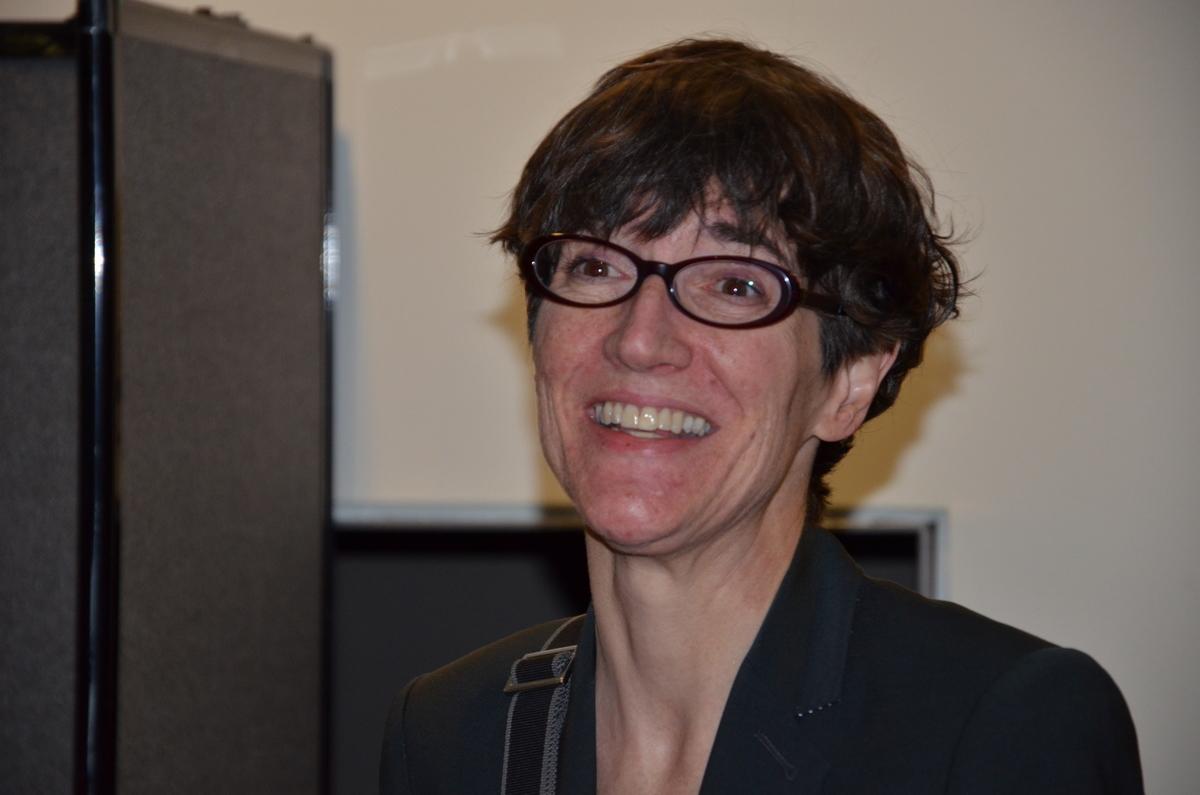
Impacted by MS for 20 years from when she was diagnosed, Kristen has been volunteering with the MS Society since then and currently resides as the President of the Board of Directors for the Montreal chapter. Kristen believes research is essential for understanding MS and to find treatments that will result in improved quality of lives for those living with this disease. “Ongoing and varied research is vital to the understanding, prevention and treatment of MS. There is much work still to be done to understand this disease that affects young people in their prime of life.” She returned for a second year as a community representative and provided input at the Clinical and Population Health review meeting.
Read Kristen’s full interview
In what ways have you been involved with the Multiple Sclerosis Society of Canada as a volunteer, as a leader, and/or as an ambassador?
I have been involved as an active volunteer with the Montreal chapter for 20 years, particularly on the Board. I have been the President since 2016. I am also involved in projects led by the Quebec Division including serving as its representative on the Board of the "Confederation des organismes de personnes handicappees du Quebec". In 2010, the Division formally recognized my volunteer contribution with a "Prix de Merite". I am a returning Community Representative.
What inspires you to get involved with the MS community?
I have now lived with MS for two decades, I keep up to date on issues and research related to MS. I have broad skills related to service planning, evaluation, advocacy and policy. I want to keep contributing and learning from others.
Please describe one particular moment or experience with MS that is most important to you or has been most instructive in your life.
In my experience with MS both personally and with the community, I continue to be struck by how people with challenges are resilient and have such ability to adapt. In adapting, we become ambassadors. This involves sensitizing others to the condition and its consequences advocating for needs to be addressed.
What do you hope to gain and contribute as the voice of the MS community in the research review process?
With my personal experience, my broad skills and knowledge of the MS Society, I believe that I bring a perspective that will serve as a useful conduit between the MS community and the research review process.
Is there any area of MS scientific research that you are especially passionate about?
I am particularly interested in research from Secondary Progressive MS to basic science to issues of quality of life.
What did you learn from being a Community Representative last year and how does it change your perspective on research?
My involvement reinforced my understanding of the effort it takes to engage in the research process and the time it takes for results to be put into practice for those living with MS. This is important information to convey to the MS community. It can sometimes seem that resources put into research is done at the expense of services.
How important is it to engage the MS Community in the review process?
As the MSSC is working to improve the well-being of people living with MS by funding research, it is indeed important that Community Representatives participate in the discussions/decisions about yearly funding, They are a voice for the community on the pertinence and impact of the different submissions. As in the previous question, this is important information to convey to the MS community.
What was your most memorable moment of the review process?
I enjoyed the open exchange between the Scientific Reviewers and the Community Representatives. This atmosphere was created by 1) having Community Representatives be first in presenting their reviews and 2) the collegiality of Scientific Reviewers. In my view, we learned from each other.
Shannon Bachorick- Regina, Saskatchewan
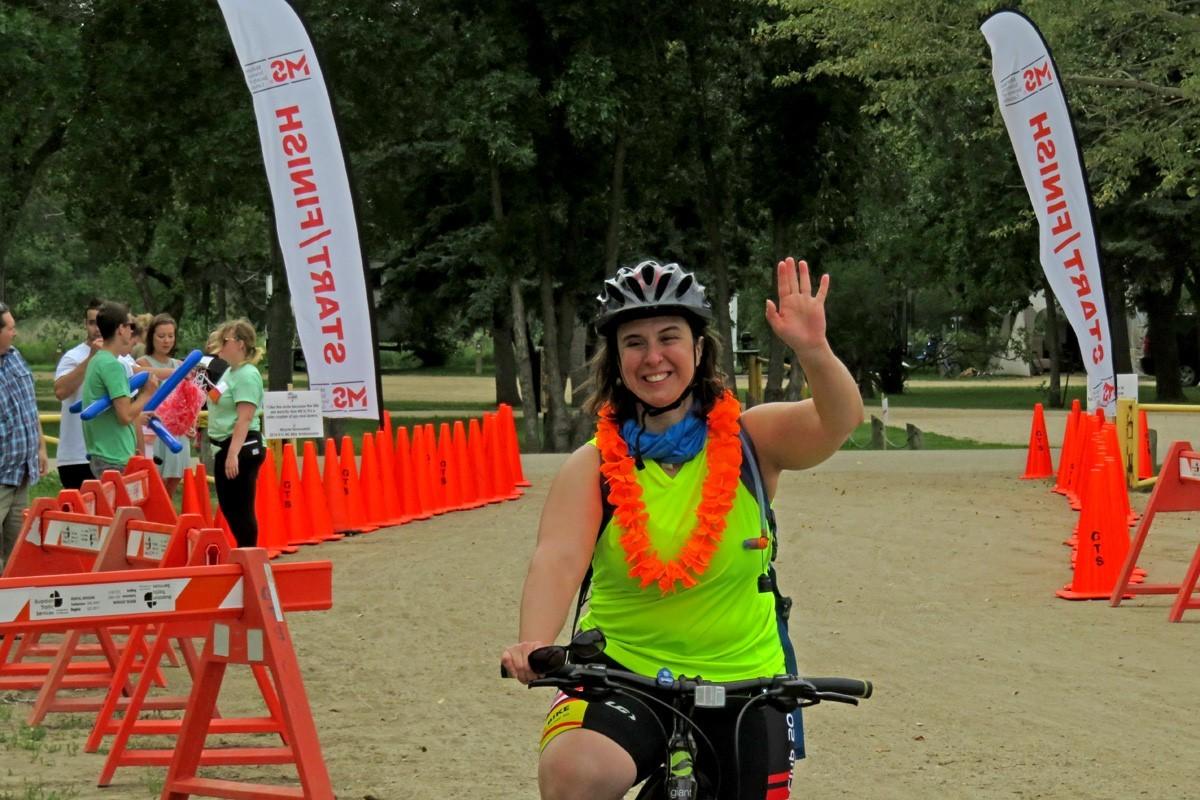
An active leader in the MS community, Shannon returned for her second year as a community representative to serve on the Biomedical Research Review Committee panel. Passionate about doing anything she can to contribute to the fight against MS, Shannon participates in the MS Walk and MS Bike every year. “As a person living with MS, it is important for me to raise awareness and funds for others living with MS and for the amazing researchers dedicated to studying the disease and looking for a cure,” says Shannon. Being a community representative was the natural next step to giving back to the MS Community.
Read Shannon’s full interview
In what ways have you been involved with the Multiple Sclerosis Society of Canada as a volunteer, as a leader, and/or as an ambassador?
I have volunteered at both the MS Walk and MS Bike, and have been a team captain for both events (my team is Inflamed in the Membrane).
What inspires you to get involved with the MS community?
As a person living with MS, it is important for me to raise awareness and funds for others living with MS and for the amazing researchers dedicated to studying the disease and looking for a cure.
Please describe one particular moment or experience with MS that is most important to you or has been most instructive in your life.
Last year when I participated in this process, it was very humbling to interact with the scientists who have dedicated their career to MS research and to read the grant proposals from people who have no connection to MS yet wish to work toward finding a cure. I also realized that scientific research is not a 9 to 5 job with a nice cushy pay cheque. Instead it is like being an artist who lives grant to grant.
What do you hope to gain and contribute as the voice of the MS community in the research review process?
Originally I wanted to be a voice for the natural health community, before I knew what kind of applications I would be reviewing. Now I just want to be an unbiased voice in the grant proposal process and lend support to the most relevant projects on behalf of the MS community.
Is there any area of MS scientific research that you are especially passionate about?
Finding novel therapies that have minimal adverse effects.
What did you learn from being a Community Representative last year and how does it change your perspective on research?
I learned that researchers rely on funding from sources not solely related to pharmaceutical companies, and that their livelihood depends on this funding. I also learned how long a process it is to get a research project up and running, and to see any impact in the MS community.
How important is it to engage the MS Community in the review process?
It is important for the segment of the community that is, like myself, wary of drug companies. It is also important for people (NOT like myself!) who are mistrustful of the MS Society and think that it is in the back pocket of Big Pharma. It is humbling to see the hard work that goes into improving the lives of strangers, both in the lab and in the MS Society offices.
What was your most memorable moment of the review process?
Being treated as an equal player during the meetings by the scientific panel and having my input appreciated by others in the room with so much more knowledge than me.
Karma Deakin-Harb- Edmonton, Alberta

Its been six years since the diagnosis that Karma thought would be a “death sentence”, however, she realized that staying physically active allowed her to manage her disease better. Karma has participated in MS Bike events and learned about other people’s day to day challenges of managing the disease. “I have seen some amazing things happen in MS research. Research brings hope to so many Canadians and their families, including mine.” That was why Karma decided to submit an application to be a community represented and represented the community on the Biomedical Research Review Committee.
Read Karma’s full interview
In what ways have you been involved with the Multiple Sclerosis Society of Canada as a volunteer, as a leader, and/or as an ambassador?
I have not had significant experience with the Multiple Sclerosis Society of Canada. I have, however, been involved in the Johnson MS Bike Tour as a bike check person for the last few years. In my role there I had the opportunity to talk to many people and have decided that I would like to be more involved with the MS Society.
What inspires you to get involved with the MS community?
I think it is really the people that inspires me to get involved. In talking to people who have been diagnosed with MS, and also myself having been diagnosed six years ago, I realized there is more that I could be doing to help people who need it most.
Please describe one particular moment or experience with MS that is most important to you or has been most instructive in your life.
I could not exactly pinpoint one specific moment, but I can say that there have been a series of events that have been important to me. I think the biggest thing for me was the fact that I became very active in order to mitigate some of my symptoms. I became a spin instructor, I also do High Intensity Interval Training (HIIT) four days a week, and recently I have gotten involved in learning how to do powerlifting. I think the big thing for me was realizing that physical activity is so important for my day to day life living with Multiple Sclerosis.
What do you hope to gain and contribute as the voice of the MS community in the research review process?
I hope I can gain a more profound understanding on what’s happening in MS research. I have a keen intellect and I am constantly curious about new and emerging research. What I hope to be able to contribute is a perspective of someone who can think critically about different issues that affect people with Multiple Sclerosis.
Is there any area of MS scientific research that you are especially passionate about?
I think I am especially passionate about the link between physical activity and the progression of MS. I am also so passionate in understanding how physical activity can help with someone's day to day quality of life.
Jordan Rosenblood- Burlington, Ontario
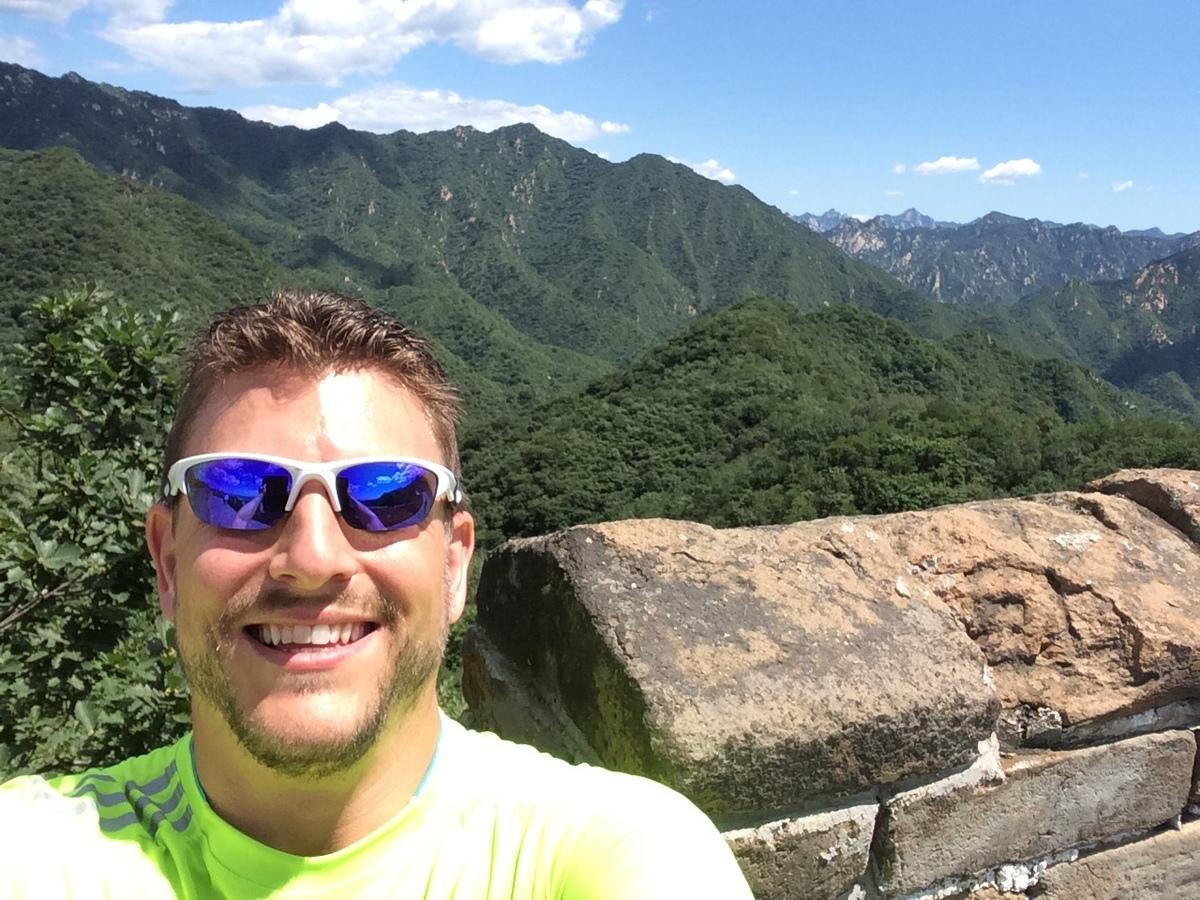
On any given weekday, Jordan can be found in a classroom teaching science, but his motivation to serve as a community representative came from his personal journey with MS. Jordan was diagnosed with MS in 2015 and has been an active volunteer with the MS Ride program for the past two years. “Being a member of the research review committee is a way to give back to the MS community by using my skill set and knowledge in a productive and efficient manner. I also want to learn more about where research is going and improve my overall knowledge of the biology of this disease.” Jordan served as a community representative for the Biomedical Research Review Committee.
Read Jordan's full interview
In what ways have you been involved with the Multiple Sclerosis Society of Canada as a volunteer, as a leader, and/or as an ambassador?
I have been involved as a volunteer with several MS Bike rides in Toronto over the years. I was a team leader with (at one point) over 20 people on the team.
What inspires you to get involved with the MS community?
As a person with MS, I want to always do something to improve the lives of those with MS. For several years I did the Bike ride in Toronto and when this opportunity presented itself I wanted to give my time to the the MS Society. The other part that inspires me is the unwavering support I get from my wife and kids. They understand what it means to need a bit more support and theirs is unflappable. They inspire me with their love and dedication. Not everyone has that, so their support allows me to help others through this committee.
Please describe one particular moment or experience with MS that is most important to you or has been most instructive in your life.
The most instructive MS day in my life was the day I got the news. That day was a turning point in my families life where my outlook on life took a 90 degree turn. Travel became a much higher priority and spending even more time with my wife and kids became an even larger focus of my life.
What do you hope to gain and contribute as the voice of the MS community in the research review process?
I hope to gain a deeper appreciation as to where the science is going and give the researchers a reflective position as to how it will affect a father, husband and teacher.
Is there any area of MS scientific research that you are especially passionate about?
I am very curious as the direction and clues in areas beyond treatment. I am curious about genetic links and transmission research as well.